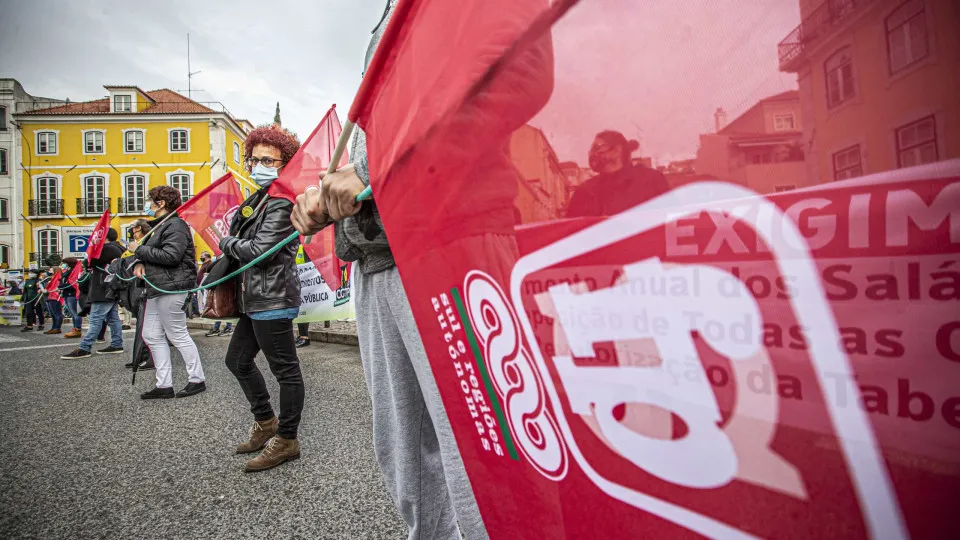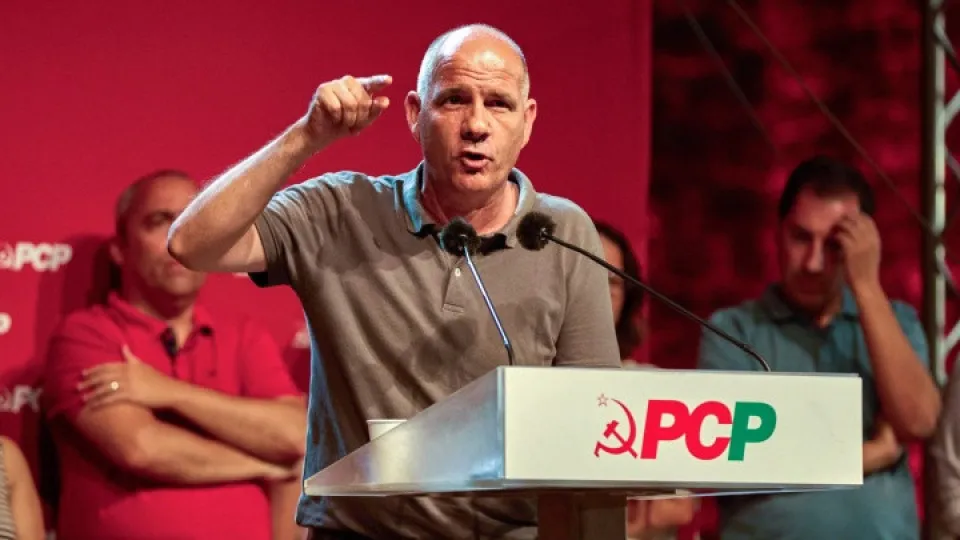
Teachers, educators and school aides, doctors, nurses and health assistants, public transport workers, tax inspectors and employees, judicial workers, and others are expected to participate.
The strike, which affects all state workers, is spurred by demands for salary increases, career advancement, reinstatement of public sector jobs, and the protection of public services.
Tiago Oliveira, the general secretary of CGTP-IN, plans to join health workers at 00:00 at the São José Hospital in Lisbon and at 12:00 at the São João Hospital in Porto.
On Tuesday, CGTP general secretary Tiago Oliveira warned that if the Government continues to push forward with proposed labor law changes, a general strike could be called.
“All forms of protest are under consideration, including a general strike,” stated the CGTP-IN representative in Beja.
“This will be a significant strike and will force the Government, if it acts wisely, to realize that it is provoking social conflict which will not cease because workers demand different policies,” said Sebastian Santana, coordinator of the Frente Comum, during a press conference in Lisbon on Tuesday.
The union leader predicted the closure of many schools, disruptions in health and justice services, and strong participation from workers in local government, central public administration, and the culture and monuments sector.
The National Federation of Doctors (Fnam) also called for a strike on Friday, coinciding with the Public Function strike, due to the government’s refusal to negotiate the medical career framework.
“Since the Minister of Health is refusing to seriously negotiate the medical career and has made decisions that endanger the population, we are announcing a doctors’ strike for October 24 nationwide,” said Fnam President Joana Bordalo e Sá to Lusa, following a meeting with Minister Ana Paula Martins.
In a statement, teachers, educators, and researchers declared they would join the strike, also convened by FENPROF, in support of “better salary and professional conditions” and “the enhancement of public education and science.”
At Tuesday’s press conference, union leader Sebastian Santana stated that workers cannot accept a State Budget that leads to deteriorating working conditions and disinvestment in public services.
“The 760,000 public administration workers carry significant weight in Portuguese society. Ignoring this would be a severe oversight by the Government,” he said.
When asked if there was room in the State Budget to accommodate the 15% salary increase demanded by the Frente Comum (at least 150 euros), given the slight surplus of 0.1% of GDP projected for 2026, the union representative affirmed there was, contingent on changes in political priorities.
“There is plenty of room. As long as the State Budget proposal does not include 1.7 billion euros in tax reliefs for companies, nor a 300 million euro cut in corporate tax… It’s not a matter of lack of funds, but a question of political choices,” he stated.
Also at the press conference, the Frente Comum called the labor reform package “shameful” and described the state’s restructuring as “flattening public services,” starting with the creation of the Agency for Educational System Management, which they claimed would have a business-driven logic, marking the first step in the dismantling of the public education system.
The Government submitted the 2026 State Budget proposal to Parliament on October 9, maintaining the initial forecast for public sector salary increases as outlined in the multi-year agreement signed in November 2024 with Fesap and the Trade Union Front.
For 2026, the planned increase is 56.58 euros or 2.15%, rising to 60.52 euros in 2027 and 2028, with extensions until 2029. The current starting salary in Public Administration, 878.41 euros, will rise to 934.99 euros in 2026, including salary progressions, promotions, and agreements, totaling an estimated 1.248 billion euros in personnel expenses.
The Frente Comum represents 29 unions covering all sectors of public administration.




